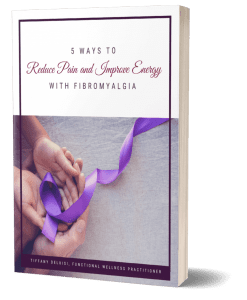How Dieting Can Trigger Inflammation in Women with Fibromyalgia

Are you a brave warrior battling fibromyalgia? Do you find yourself struggling with weight management while trying to alleviate the symptoms of this challenging condition? If so, this post is for you! Today, we’ll delve into the often-overlooked link between dieting and inflammation in women with fibromyalgia.
As women with fibromyalgia, we face unique challenges when it comes to maintaining a healthy lifestyle. Dieting, with its restrictive nature and potential for nutrient imbalances, can unwittingly exacerbate inflammation within our bodies. Let’s explore some key reasons why dieting might not be the best approach for those of us fighting this condition:
- Increased Stress Response: Dieting can put immense stress on our bodies, causing the release of stress hormones like cortisol. In individuals with fibromyalgia, this heightened stress response can lead to increased inflammation and heightened pain perception.
- Nutrient Deficiencies: Many popular diets focus on severe caloric restriction or eliminating entire food groups. For women with fibromyalgia, these diets can lead to nutrient deficiencies, including essential vitamins and minerals that play crucial roles in managing inflammation and promoting overall well-being.
- Gut Health Imbalance: Emerging research suggests a strong connection between gut health and fibromyalgia symptoms. Dieting can disrupt the delicate balance of our gut microbiota, triggering intestinal inflammation, and further aggravating fibromyalgia-related symptoms.
- Altered Immune Response: Our immune system plays a vital role in managing inflammation in the body. Prolonged dieting and potential nutrient deficiencies can weaken our immune response, making it harder for our bodies to regulate inflammation effectively.
- Impacts on Sleep Quality: Sleep disturbances are common in fibromyalgia, and dieting may worsen this issue. Caloric restriction or skipping meals can disrupt sleep patterns, further intensifying inflammation and pain levels.
- Psychological Toll: Chronic dieting can take a significant toll on our mental well-being. Stress, anxiety, and feelings of failure can contribute to inflammation, as these emotions trigger inflammatory responses within the body.
So, what can we do instead? Embracing a holistic and balanced approach to nutrition can help us manage inflammation while supporting our overall health:
- Focus on Anti-Inflammatory Foods: Incorporate a variety of anti-inflammatory foods into your diet, such as fatty fish (rich in omega-3s), colorful fruits and vegetables, whole grains, nuts, and seeds.
- Mindful Eating: Practice mindful eating, paying attention to your body’s hunger and fullness cues. Avoid restrictive diets and instead opt for a balanced, nourishing meal plan that suits your unique needs.
- Gentle Exercise: Engage in low-impact exercises that can help manage fibromyalgia symptoms, such as yoga, swimming, or walking. Exercise can aid in reducing inflammation and improving overall well-being.
Remember, you are not alone on this journey. Seek support from a healthcare professional, support groups, and fellow fibromyalgia warriors. Together, we can find ways to embrace a healthier lifestyle while managing inflammation and reclaiming our lives from fibromyalgia’s grasp.
Stay strong, stay informed, and know that you have the power to take charge of your health in the most compassionate and understanding manner possible.







